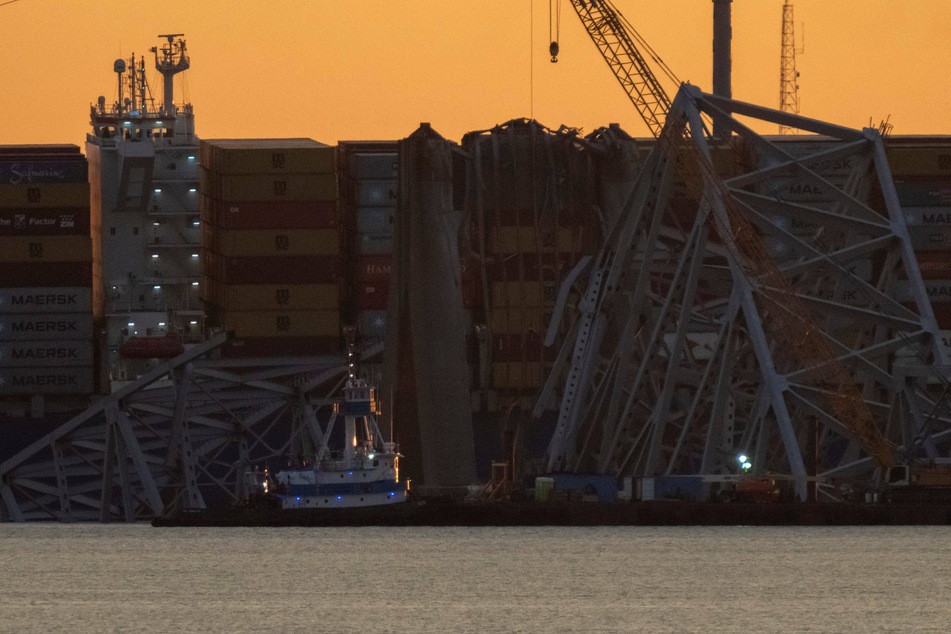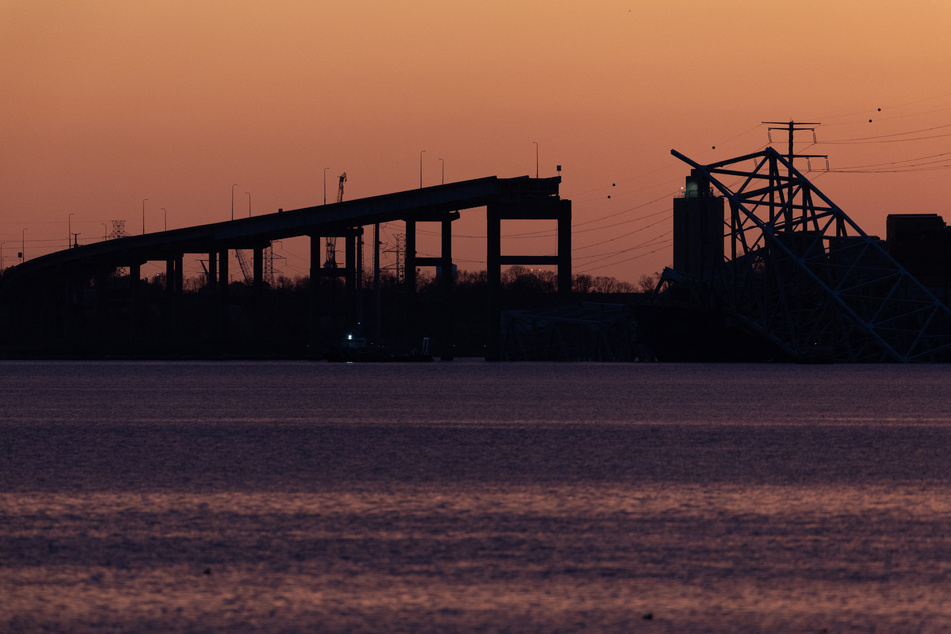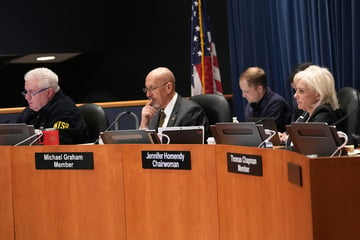Baltimore Key bridge clean-up begins as authorities call off recovery efforts for missing bodies
Baltimore, Maryland - Cranes began arriving Thursday at the scene of the catastrophic bridge collapse over Baltimore harbor as authorities shifted to a clean-up phase of the recovery.

The machinery will be deployed in a tricky operation to clear the twisted steel remnants of the Francis Scott Key Bridge from where it fell into the Patapsco River, blocking the entrance to the Port of Baltimore, after a massive cargo ship hurtled into the span Tuesday.
The Army Corps of Engineers "is moving the largest crane on the Eastern Seaboard to Baltimore to help us," Maryland Governor Wes Moore told reporters Thursday evening.
Coast Guard Rear Admiral Shannon Gilreath outlined the intense work ahead: "Before we can actually engage in lifting, we've got to... figure out how to cut the bridge into the right size pieces so that we can actually lift them with the crane" out of the water.
Given the complexity and potential risks, efforts to recover the bodies of the four men still missing were called off.
"That water is so dark and the debris is so dense that, in most instances, our divers cannot see any more than a foot or two in front of them," Moore explained.
Even as crews look ahead toward recovery, "we're... incredibly sensitive to the notion that this is also the resting place for four fathers, for four brothers, for four sons," senior White House official Tom Perez told MSNBC earlier in the day.
Maryland governor pays tribute to victims of bridge collapse

The missing men, all Latin American immigrants, are believed to have been killed when the Singapore-flagged 1,000-foot container ship Dali lost power and careened into a support column.
The workers were part of an eight-person road repair crew on an overnight shift. Two were rescued shortly after the collapse, and two bodies were recovered Wednesday.
"Our hearts are with the families," said Moore, whose office established a relief fund to raise money for the victims' families. "We are so sorry for this tragedy."
He urged patience, adding, "This work (to rebuild) is not going to take hours, this work is not going to take days, this work is not going to take weeks."
"We have a very long road ahead of us."
Cover photo: IMAGO / USA TODAY Network

